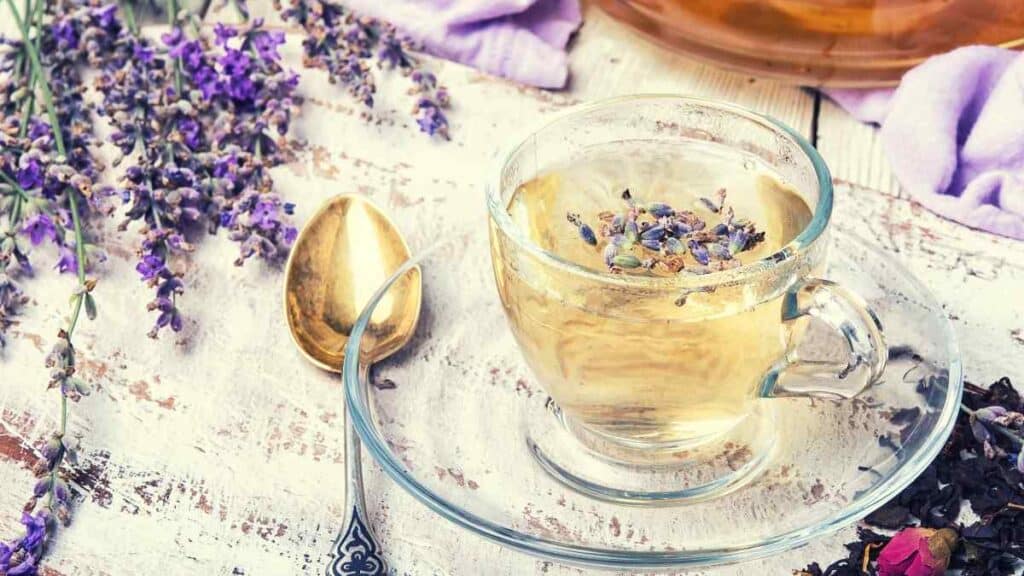From the serene tea gardens of China to the vast plantations of India, the ancient ritual of brewing tea has been celebrated and cherished for millennia. More than just a soothing beverage, tea holds a revered place in various cultures, often associated with healing, rejuvenation, and even spiritual transcendence. For nursing mothers, this period is marked by profound physical and emotional changes; a time when optimal nutrition and health become paramount, not just for their well-being, but also for the nourishment and growth of their newborn.
As they navigate this unique phase, certain herbal tea and lactation tea products, steeped in tradition and backed by modern research, can offer myriad benefits. These range from supporting milk production to aiding postpartum recovery and providing relaxation. Dive into the world of teas with us, and discover the brews that can enhance the wellness journey of every nursing mother. Welcome to “Steeping Wellness: Beneficial Teas for Nursing Mothers, an article that discusses teas with great health benefits for nursing mothers.

Understanding the Basics
For many breastfeeding mothers, the quest to ensure a steady breast milk supply is often filled with a myriad of solutions, and among the most revered are lactation teas. Before delving deep into the world of teas that can potentially boost milk production or ease a mother’s breastfeeding journey, it’s crucial to understand the difference between herbal teas and true teas, and the general safety guidelines to keep in mind.
Herbal Teas vs. True Teas
At the heart of the distinction lies the source. True teas, like green tea and black tea, come from the Camellia sinensis plant. They contain caffeine, with green tea having lesser amounts than its black counterpart. On the other hand, herbal teas aren’t technically teas but are infusions of various organic herbs, flowers, berries, and roots. Examples include chamomile tea, rose hip tea, peppermint tea, and lemon balm. Most herbal teas are naturally caffeine-free, but always check labels to be sure.
Safety Guidelines for Consuming Tea During Lactation
1. Caffeine Intake: While it’s okay for nursing moms to drink green tea or other caffeinated drinks in moderation, excessive caffeine consumption can lead to an upset stomach or even irritability in the infant. Too much caffeine can also interfere with breast milk production. Hence, breastfeeding moms should monitor their caffeine intake.
2. Herbal Blends: Not all herbal teas or blends are safe for breastfeeding mothers. For instance, peppermint tea may lower milk supply in some women, while fenugreek tea, blessed thistle, and red raspberry leaf tea have been traditionally used to boost milk production. It’s essential to choose herbal products wisely and be aware of their potential effects on milk flow.
3. Quality and Authenticity: Opt for teas that are USDA-certified organic. These ensure the natural ingredients used are free from harmful pesticides. Also, a certified kosher label is a testament to a tea’s quality and adherence to specific dietary laws.
4. Consultation: Lactation consultants and healthcare professionals should be consulted before introducing any lactation tea or herbal medicines to one’s diet, especially when there are concerns about low milk supply or any other breastfeeding-related issues.
5. Other Considerations: Some teas, although pleasant in taste, might cause side effects like stomach cramps. For instance, while many find chamomile tea soothing, large quantities can upset the stomach. Similarly, anise seed in some teas might not agree with everyone.

Teas Beneficial for Milk Production
The quest to support and increase breast milk supply has taken breastfeeding mothers on an aromatic journey through the realm of teas. Yet, amid the myriad of beverages available for breastfeeding mother, only a select few herbal teas stand out for their potential to bolster breast milk production. Let’s further discuss a few of them.
Fenugreek Tea
Origins and Historical Use:
Fenugreek, known scientifically as Trigonella foenum-graecum, has roots in the Mediterranean region. Historically, this herb was not only used as a culinary spice but also as a medicinal agent in ancient Egyptian, Greek, and Indian traditions. In these cultures, fenugreek was believed to aid various ailments, from digestive issues to inducing labor in pregnant women. Most notably for breastfeeding mothers, it became revered for its potential to boost milk supply.
The Lactation Connection:
- Herbal Synergy: Fenugreek tea is often paired with other lactation teas, like blessed thistle or alfalfa tea, in blends that aim to optimize milk production. Such combinations are believed to have a synergistic effect, further assisting mothers with low milk supply.
- The Science Behind It: Modern studies on fenugreek’s efficacy in increasing milk supply have provided promising results. While it’s not fully understood how fenugreek works in this regard, it’s believed that the herb may mimic the actions of estrogen in the body, thus promoting breastmilk production. Some mothers report seeing a difference in their milk flowing more readily within days of consuming the tea.
- Using Fenugreek Tea: To make the tea, simply steep the fenugreek seeds in hot water. The resulting brew has a maple-like taste, making it a pleasant drink for many. It’s caffeine-free, making it a suitable choice of drink tea while breastfeeding without worrying about caffeine consumption. However, just like any other herbal product, it’s important for breastfeeding moms to ensure they’re not consuming it in excessive amounts and always consult a healthcare professional.
Blessed Thistle Tea
Traditional Uses and Benefits:
Historically, blessed thistle was hailed in various cultures for its myriad of health benefits. Beyond the realm of lactation teas, this herb was believed to aid digestion, alleviate menstrual cramps, and even combat fever. For breastfeeding mothers, blessed thistle tea has garnered a reputation as a potential enhancer of breast milk supply. Although scientific evidence is still budding, countless anecdotes and traditional practices have positioned it as a go-to for mothers keen on optimizing their breastmilk supply.
Synergy with Fenugreek:
Fenugreek, another caffeine-free herbal tea, has long been celebrated for its potential to increase milk supply. When paired with blessed thistle, these two create a harmonious blend, working in tandem to support lactation. Some theories suggest that while fenugreek stimulates the sweat glands (the mammary gland is a modified sweat gland) to produce breast milk, blessed thistle acts by increasing the available milk. This tasty blend is often more pleasant in taste compared to consuming each tea on its own. Many breastfeeding mothers have found that combining blessed thistle and tea fenugreek boosts their breast milk production more effectively than when either is taken alone.
For mothers worried about caffeine consumption from other beverages like green tea or black tea, turning to blessed thistle provides a caffeine-free alternative that supports their breast feeding journey. Though it doesn’t have the familiar taste of teas like raspberry leaf tea or the calming effects of lemon balm, blessed thistle holds its own unique position in the pantheon of best lactation teas.
In closing, while there are different herbal teas on the market, blessed thistle stands out for its deep-rooted traditional uses and its synergistic effect with fenugreek. However, it’s essential to remember that every breastfeeding mother’s body is unique. What aids one mother in producing enough milk might differ from another. It’s always best to consult with healthcare professionals before adding any tea or supplement to one’s diet, ensuring the breastfeeding journey remains a healthy and nourishing experience for both mother and child.
Fennel Tea
Key Compounds and Their Benefits:
Fennel seeds are the primary ingredient in fennel tea. They contain phytoestrogens, which are plant compounds that mimic the hormone estrogen in the human body. This is believed to play a role in stimulating the mammary glands, thereby potentially increasing breast milk supply. Moreover, fennel also possesses anethole, a compound that’s thought to increase milk secretion. Beyond lactation benefits, fennel has long been used as a remedy for digestive issues, offering relief from gas and bloating, which can be a boon for both the breastfeeding mother and her baby.
Dosage and Recommendations:
For mothers looking to benefit from fennel tea while breastfeeding, a general recommendation is to drink one to three cups daily. Begin with a single cup to assess tolerance and note any changes in milk supply.
It’s vital to note that while fennel tea is generally considered safe, excessive consumption can have side effects, so moderation is key. Pregnant women, especially, should consult their healthcare providers before indulging in large quantities as certain compounds in fennel might affect pregnancy.
Moreover, those nursing mothers who are already integrating other lactation teas like milk thistle, goat’s rue, or raspberry leaf into their routine should be aware of their cumulative intake. While tea can be a comforting and beneficial ritual, balancing it with other caffeinated drinks and keeping an eye on overall caffeine intake is crucial.

Teas for Postpartum Recovery and Mood
The transformative journey of motherhood doesn’t end with childbirth. The postpartum period, commonly known as the “fourth trimester,” is marked by immense physical, emotional, and hormonal changes, and many new mothers seek natural ways to navigate this unique phase. Herbal teas, with their soothing properties and health benefits, emerge as a favored ally. Let’s further discuss a few of them.
Raspberry Leaf Tea
Role in Toning the Uterus:
Raspberry Leaf Tea is made from the leaves of the red raspberry plant. Historically, it’s been hailed for its potential benefits during pregnancy and postpartum. One of its most celebrated roles is in toning the uterus. Rich in fragarine, a compound believed to strengthen the muscles of the uterus, Raspberry Leaf Tea aids in reducing postpartum bleeding and helps the uterus return to its pre-pregnancy size more quickly. By promoting uterine health, it not only supports physical recovery but also aids in balancing mood during the postpartum period.
When to Consume Postpartum:
While Raspberry Leaf Tea can be consumed during the latter stages of pregnancy with a healthcare provider’s advice, its benefits extend into the postpartum phase.
While Raspberry Leaf Tea is generally considered safe postpartum, it’s essential to listen to your body and consult with a healthcare provider, especially if consuming alongside other lactation teas or supplements.
Teas for Postpartum Recovery and Mood
Postpartum, often described as the “fourth trimester,” is a time of immense adjustment. Between the frequent feedings, the sleepless nights, and the emotional highs and lows, many mothers seek natural ways to find comfort and restoration. Herbal teas, with their centuries of anecdotal benefits and holistic properties, serve as a gentle remedy during this period. Among these, Chamomile Tea holds a special place. This column delves deep into the calming universe of Chamomile Tea and its potential benefits for the postpartum mother.
Chamomile Tea
Calming Properties and Benefits for Sleep:
Chamomile is renowned for its tranquil properties. This herbal tea, often characterized by its pleasant taste and delightful aroma, can be a balm for tired souls. The key lies in its compound called apigenin, which binds to specific receptors in the brain, promoting sleep and reducing insomnia. For postpartum mothers, whose sleep patterns are often disrupted due to baby’s feeding schedules and adjustments to motherhood, a warm cup of Chamomile Tea can usher in moments of relaxation, aiding in deeper and more restorative sleep.
Safety Considerations for Mother and Baby:
Like any herbal product, while Chamomile Tea is generally considered safe, there are considerations to keep in mind:
1. Allergies: Some individuals, particularly those allergic to plants in the Asteraceae family (like ragweed, marigolds, or daisies), may react to chamomile. It’s crucial to observe any allergic reactions post-consumption.
2. Milk Supply: While chamomile has been traditionally used by breastfeeding mothers across various cultures, some believe excessive consumption might affect milk supply. While there’s limited evidence to confirm this, it’s essential to monitor changes in breast milk production.
3. Interaction with Medications: If a mother is on medications, especially blood thinners or sedatives, it’s crucial to discuss with a healthcare provider as chamomile might amplify the effects.
4. Baby’s Response: While chamomile’s calming properties can be transmitted to the baby through breast milk, some babies might be sensitive. Monitoring the baby for any changes or discomfort after the mother consumes chamomile is advisable.
While Chamomile Tea can be an excellent addition to a postpartum mother’s routine, balancing it with other herbal teas like milk thistle, black tea, or the nutrient-rich rose hips tea can offer a well-rounded approach to postpartum wellness. And for mothers aiming to boost their lactation, integrating blends like oat mama or other best lactation teas can be considered.

Conclusion
The journey of motherhood is both exhilarating and demanding, interspersed with moments of pure joy and challenges. As mothers navigate the intricacies of breastfeeding and postpartum recovery, nature offers its own brew of wellness in the form of teas. “Steeping Wellness: Beneficial Teas for Nursing Mothers” has shed light on the myriad of teas that not only support lactation but also offer therapeutic benefits for the body and mind.
From bolstering milk supply to aiding postpartum recovery and enhancing mood, these teas serve as gentle companions in the beautiful voyage of motherhood. However, it’s essential to remember that while teas can be immensely beneficial, moderation is key. Every mother’s body is unique, and it’s crucial to listen to its cues, ensuring that any inclusion is done safely and in consultation with healthcare professionals. With every sip, may every mother find comfort, nourishment, and a moment of tranquility in her enriching journey. Cheers to the blend of motherhood and wellness!
Did this article help you? Please let us know by commenting below. If you have any questions, don’t hesitate to ask.



